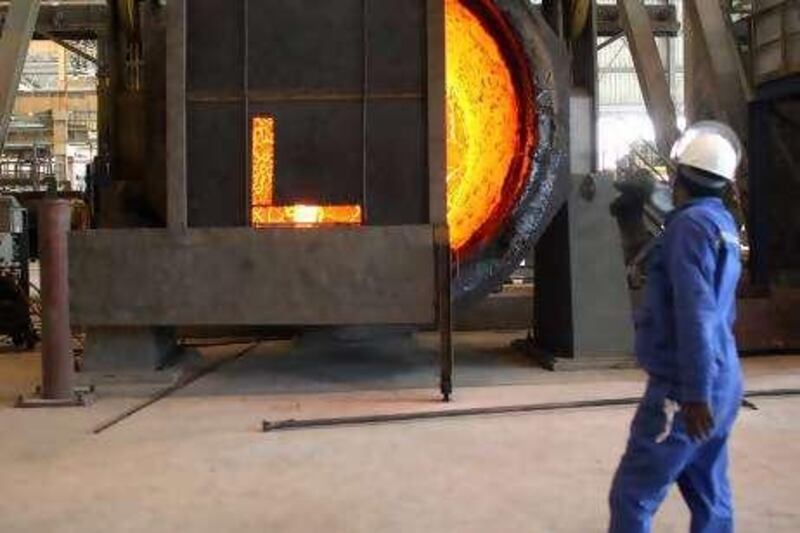Emirates Steel Industries (ESI) has gained control of the majority of the UAE market by boosting output and replacing some imports from Turkey. The company's production of steel goods at its Musaffah plants rose 45 per cent in the first half of the year compared with the same period last year, according to figures released yesterday. Sales rose 30 per cent.
The increase reflects the addition of production capacity, as well as an improved market that allowed the company to ramp up to full capacity, said Stephen Pope, the chief financial officer. "We've brought in all this new capacity to move up from 700,000 to 2 million tonnes per year and we did it in a challenging market," Mr Pope said. "And we've managed to fill that capacity by displacing imported material, primarily from Turkey."
He estimates the company now controls between 50 and 60 per cent of the UAE market for reinforcing bar, or re-bar, the steel tubes used in reinforced concrete and skeletons of tower buildings. ESI took each of its plants off-line last year to complete maintenance, although production lines were idled for much less than a month in total, Mr Pope said. Following the start-up of two other plants last summer, ESI became the country's only integrated producer, meaning it has a long production chain that starts with iron ore pellets and ends with finished re-bar and wire rod that is loaded on to lorries and sent directly to construction sites.
The integrated process allows ESI to achieve lower costs than Turkish companies and reduces its exposure to steel price volatility, said Karel Costenoble, the general manager of www.mesteel.com, which serves as a clearing house for statistics and news on the local steel market About 80 per cent of ESI's output was used by the domestic market this year, with the rest exported to Jordan, GCC countries, India, Pakistan and the Far East.
The UAE's construction market remains on a steep downturn, with the reduced number of big projects now concentrated in Abu Dhabi instead of Dubai. "This is a significant increase considering the downturn in local and regional markets," said Carl Andersson, ESI's senior vice president of operations. "Like most steel makers, we have to operate our facilities at full capacity to make a profit." @Email:cstanton@thenational.ae





